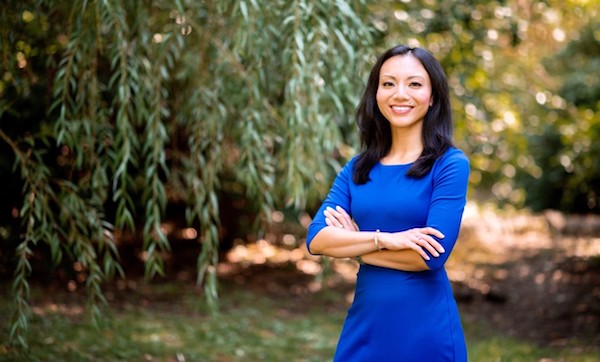Faculty Profile: Monica Wang.

Faculty Profile: Monica Wang
Narratives are one of the most powerful ways to translate research, says Monica Wang, associate professor of community health sciences. Embracing narratives is a central part of her role as associate director of narrative at Boston University’s Center for Antiracist Research.
Launched in July 2020 by antiracism scholar Ibram X. Kendi, director, Andrew W. Mellon Professor in the Humanities, and professor of history at BU, the center convenes multidisciplinary researchers and practitioners to understand, explain, and solve problems of racial inequities and injustice through four pillars of change-making work: research, policy, narratives, and advocacy.
In her position, Wang works directly with Kendi and center leadership to shift the narrative around racism and racial injustice and translate evidence-based recommendations in a way that policymakers and the general public can understand and support.
“What excites me most about this role is the capacity to generate impact on a much larger scale than I have ever anticipated,” says Wang. “Doing this work answers one of the highest callings of my public health career and my social justice heart.”
Within the narrative pillar, the team is working on a number of initiatives that amplify research, education, and public engagement around antiracism. Wang was part of the founding team of The Emancipator, an independent antiracist multimedia platform inspired by 19th-century antislavery publications. The site launched earlier this year in a partnership between the center and Globe Opinion, the Boston Globe editorial team.
“The goal for this multimedia platform is to catalyze interdisciplinary dialogue and understanding of what is driving racial inequities, as well as communicate and cultivate innovative solutions to address them,” says Wang. “We are writing today to create a more equitable society tomorrow.” “We are writing today to create a more equitable society tomorrow.”